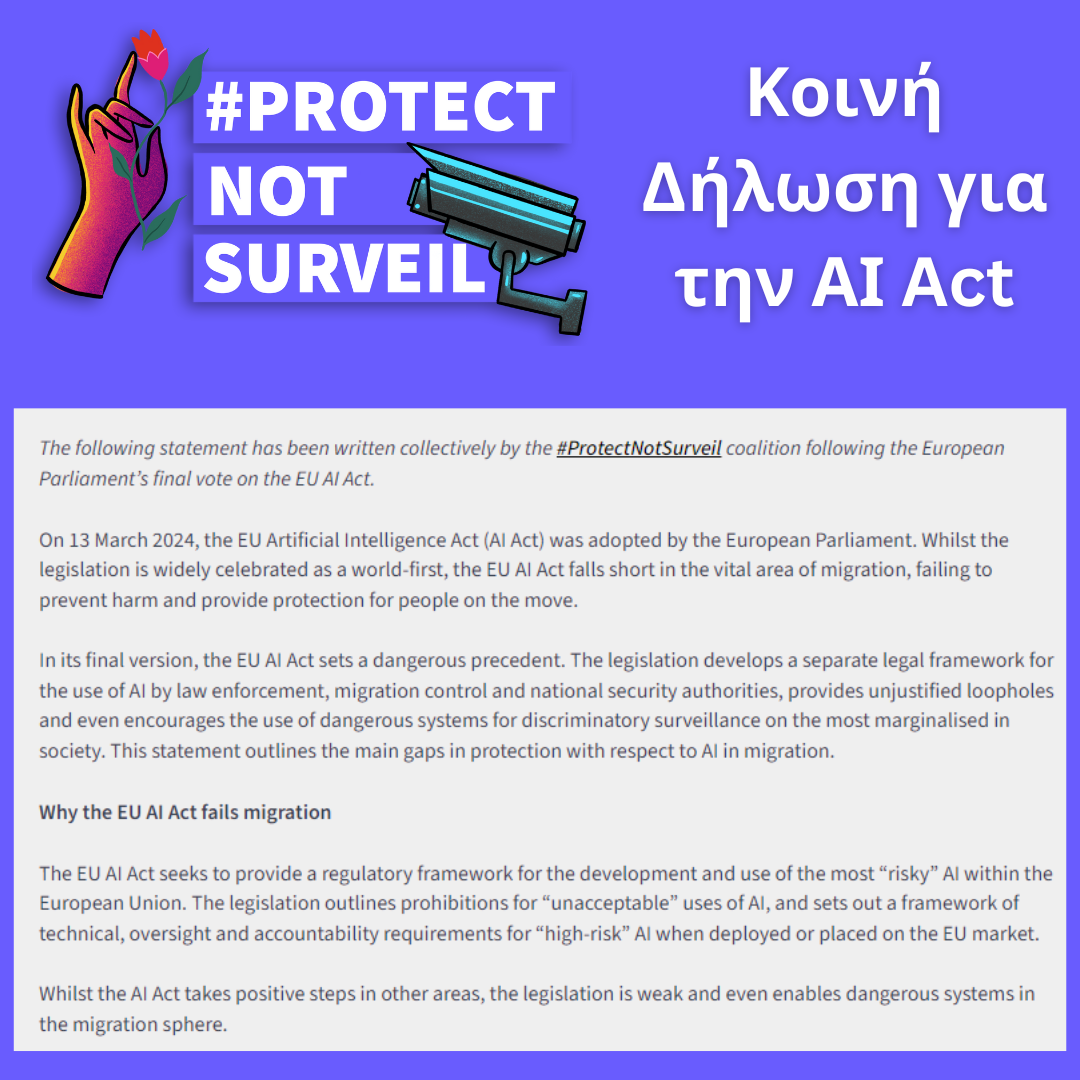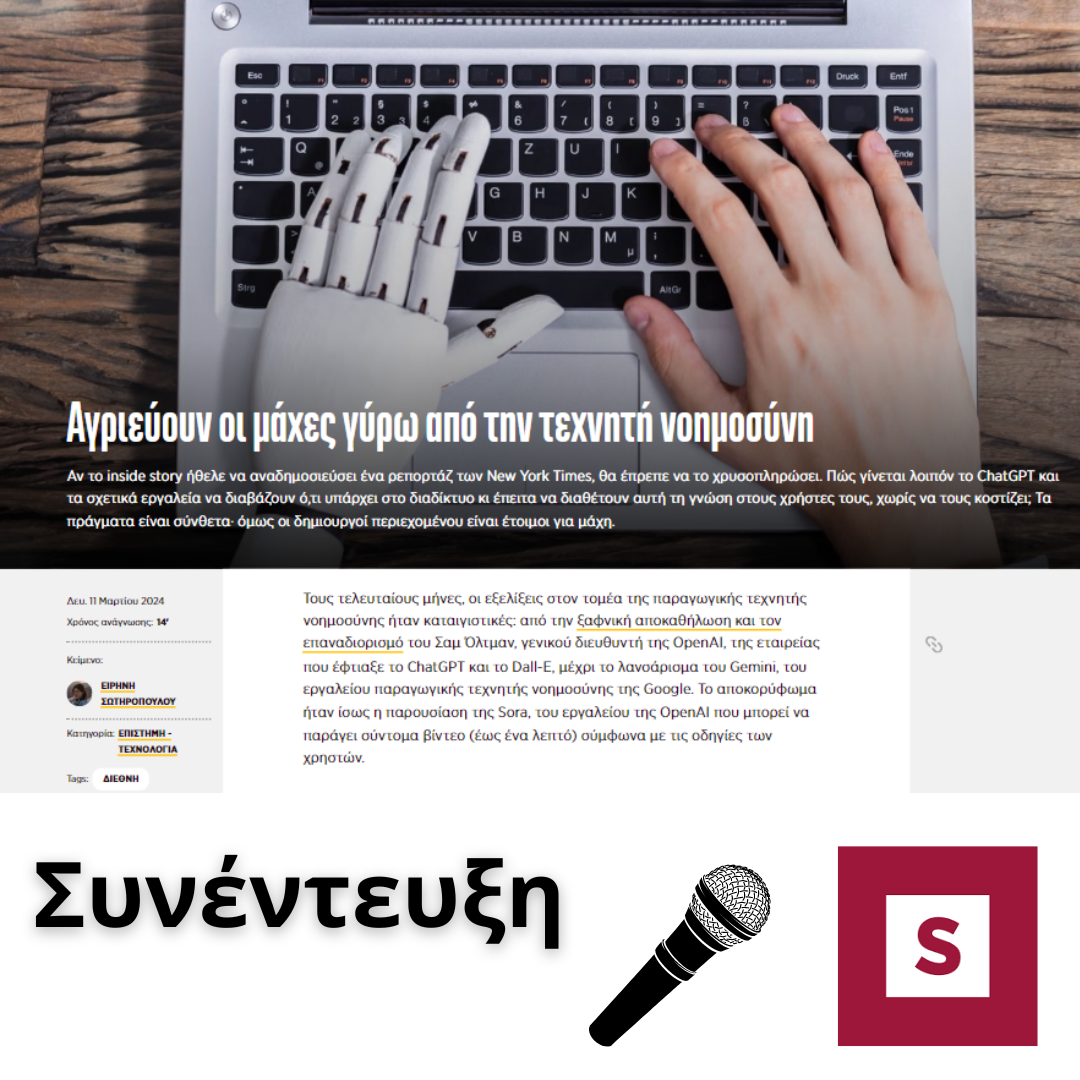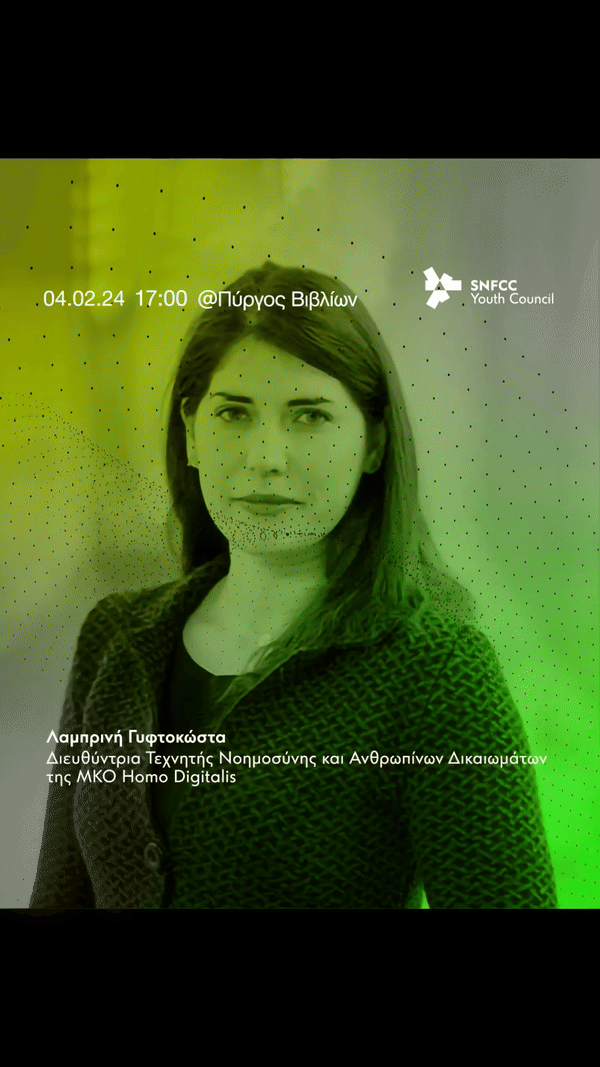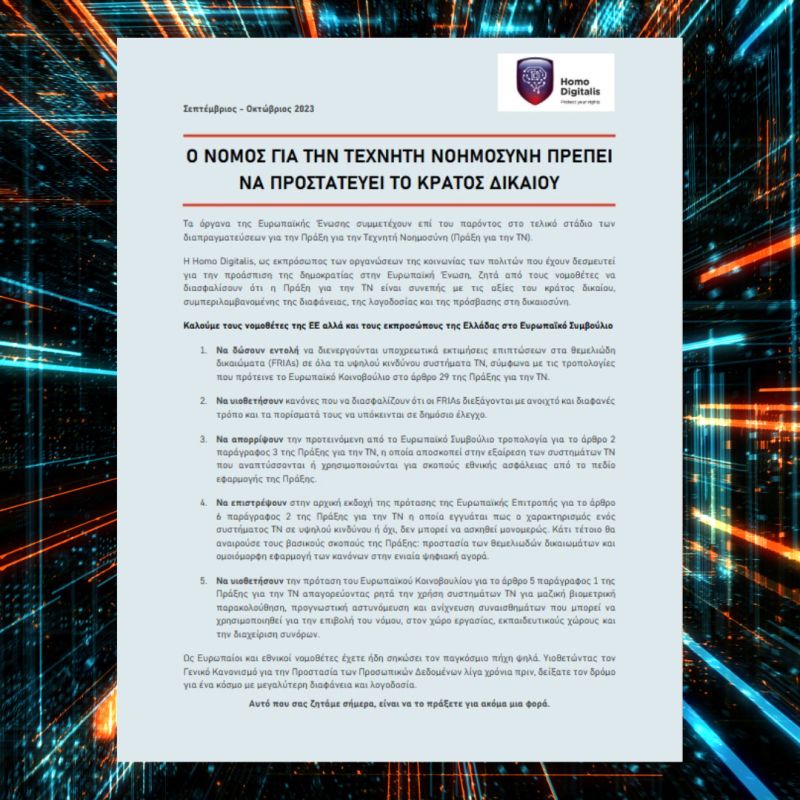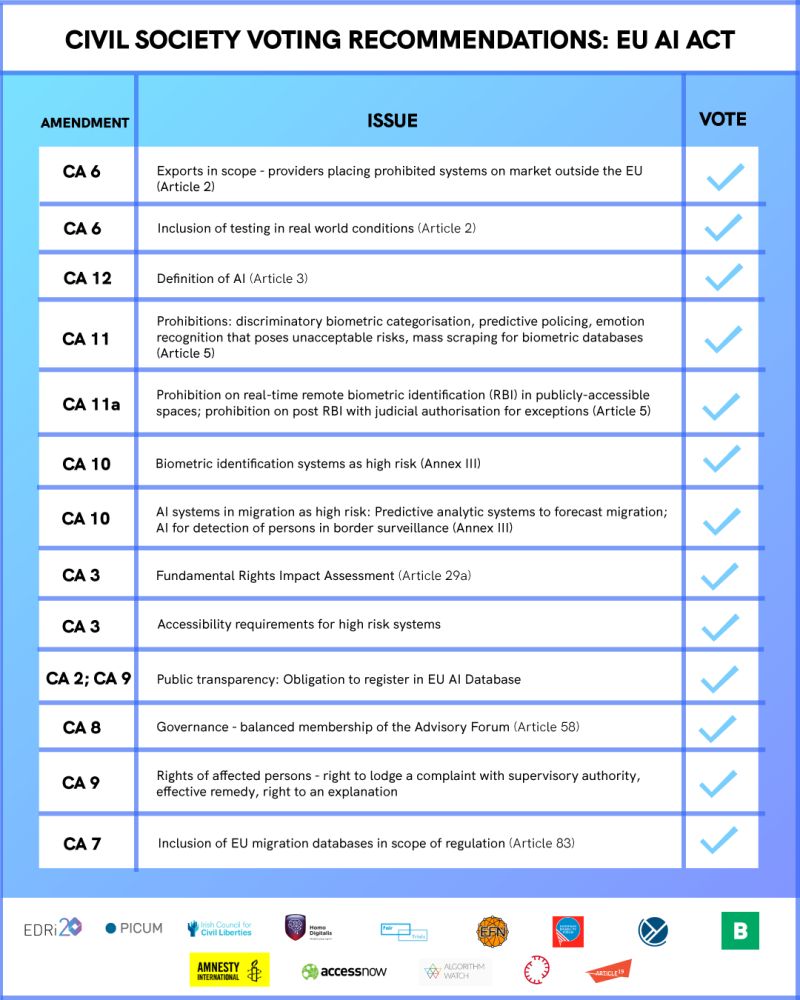We are participating in Infolaw 2024 to talk about AI and the AI Act
Lawspot.gr and the European Young Lawyers Association of Greece (ELSA Greece), organize the third InfoLaw conference entitled “Regulating Digital Innovation: Artificial Intelligence, Cybersecurity and Platforms” on 28 March 2024 at the “Miltiadis Evert” Amphitheatre of Technopolis, Municipality of Athens. This year’s event is supported by Athens Legal Tech and the Hellenic Association for the Protection of Personal Data and Privacy.
Homo Digitalis is honored to be present, participating in Roundtable 1 | AI. The Roundtable is moderated by Lillian Mitrou, Professor at the University of the Aegean, Lawyer, and President of the Institute for Privacy Law, Data Protection and Technology with their participants:
-Spyros Vlachopoulos, Professor of Constitutional Law at the School of Law, University of Athens, Greece, Lawyer.
-Telemachos Moraitis, Head of Government Relations at Microsoft for Southeast and Central Eastern European countries
-Dimitris Kyriazis, Elected Assistant Professor of European Law, Faculty of Law, Aristotle University of Thessaloniki, and
-our own Eleftherios Chelioudakis, Co-Founder and Secretary of the Board of Directors of Homo Digitalis
We would like to thank the organizers for the kind invitation, the opportunity to express our views and the inclusion! You can register to follow the very interesting discussions in person, and explore the rich programme here.
We participated at Alan Turing Institute's Workshop on th responsible governance of the use of AI in recruitment and employment’
On the 14th of March, our Director on AI and Human Rights, Lamprini Gyftokosta, participated in an online meeting organised by the Alan Turing Institute “Towards responsible governance of the use of AI in recruitment and employment’. Stakeholders from civil society, government, academia, and industry shared their views on best practices for the use of artificial intelligence (AI) in recruitment and employment, including the development of standards in this field.
Findings from this workshop will help refine the direction and scope of an AI Standards Hub research project led by researchers from The Alan Turing Institute, which will aim to investigate the role of consensus-based standards in governing the use of AI in recruitment and employment across jurisdictional borders.
In Greece, the pilot “AI based strategic workforce planning tool for the public sector” as announced by the Minister of Digital Governance, is an initiative that will apply to more than 700.000 people when completed. As Homo Digitalis underlined during the workshop, harmonised standards in areas like recruitment and employment, even if voluntary, are necessary to create a culture of compliance to the new AI rules. The role of the Greek supervisory authority in enforcing the standards and the law will be paramount, especially since according to the Greek law implementing GDRP, the employees cannot authorise Homo Digitalis to submit a complaint on their behalf without disclosing their names, putting them in an impossible position.
Protect Not Surveil Campaign's Joint Statement: AI Act provisions are dangerous for vulnerable groups in the migration field
On 13 March 2024, the European Parliament adopted the EU Act on Artificial Intelligence (AI ACT).
Although the legislation is widely presented as a global first, the EU AI Act falls short in the important area of migration, as it does not prevent the high risks that exist and does not provide the necessary level of protection to vulnerable groups in society who are targeted by intrusive technologies in this area.
In its final version, the EU AI act sets a dangerous precedent. The legislation develops a separate legal framework for the use of AI by law enforcement, immigration control and national security authorities, providing unjustified ‘loopholes’ in the obligations set out in its text, and even encouraging the use of dangerous systems for surveillance of the most marginalised members of society.
Homo Digitalis, having in the last 4 years made significant legal complaints in this regard before the DPAA, as well as a series of educational, awareness-raising and co-determination actions at EU level in this regard, is following with particular concern the relevant developments.
As part of our active participation in the Protect Not Surveil campaign, together with all its members, we have published a joint statement outlining the main gaps in the protection of vulnerable groups in the field of migration identified in the text of the AI Act.
You can read the text of our joint statement here.
We talk to Inside.story about intellectual property and generative AI models
The Director for Human Rights & Artificial Intelligence of Homo Digitalis, Lamprini Gyftokosta, spoke to Inside.story and journalist Irini Sotiropoulou about intellectual property and generative AI models in an excellent article she has prepared on the New York Times case!!
You can read the article here.
We would like to thank the journalist for her interest in our actions.
We talk to Balkan Insight and News 24/7 about AI and its use in border protection
Homo Digitalis Co-Founder and Secretary of the Board of Directors, Eleftherios Chelioudakis, spoke to journalist Eftichia Soufleri about the use of artificial intelligence systems in the field of migration and border management, highlighting the important legal actions of Homo Digitalis in this regard, before the Data Protection Authority and other competent bodies.
You can read the article on the Balkan Insight website in English here or the News 24/7 website in Greek here.
We would like to thank the journalist for her interest in our actions.
Homo Digitalis' speech on Artificial Intelligence at an event organized by the Youth Council of the Stavros Niarchos Cultural Center
This Sunday 4/2 at 17:00-19:00 (free entrance without registration) the Youth Council of the Stavros Niarchos Foundation Cultural Center (SNFCC) is organizing and curating a series of 4 short talks on AI at the Book Tower of the National Library of Greece!
Homo Digitalis was invited to speak on issues of intellectual property and legal personality of AI based on the latest developments where newspapers, artists and authors are suing companies like Open AI.
We will be represented at the event by AI & Human Rights Director Lamprini Gyftokosta.
The aim of the event is to have an open discussion with the audience and not just a monologue by the speakers! We look forward to seeing you in person and discussing these and many other topics with them:
-Panagiotis Koromilas, PhD candidate at the National Centre for Physical Sciences Research “Demokritos” NCSR “DEMOKRITOS”
-Orfeas Menis Mastromichalakis, PhD candidate and researcher at the Laboratory of Artificial Intelligence and Learning Systems of the National Technical University of Athens and
-Maria Mavropoulou , visual artist
Participation of Homo Digitalis in the EKKE and Democritοs Study on the use of Productive Artificial Intelligence in Greece
The Special Secretariat of Foresight, Hellenic Republic (Special Secretariat of Foresight, Hellenic Republic), in cooperation with the National Centre for Social Research (EKKE) and the National Centre for Scientific Research “Demokritos” (EKKE “D” National Center for Scientific Research “Demokritos”) implemented the first empirical research approach of strategic foresight for the use of Generative Artificial Intelligence (GIA) in Greece.
The research presents trends, opportunities, challenges, uncertainties and possible options that will shape the future of the country’s AI ecosystem. It provides a framework for proposed strategic initiatives and policy recommendations. Its main objective is to draw on the collective knowledge and foresight of experts and practitioners regarding the impact of the domestic Productive Artificial Intelligence (PI) ecosystem, with a time horizon of 2030.
It is a great honour for the Homo Digitalis team to be selected to be among the 30 experts who participated in the interviews using questionnaires for the preparation of the survey. The experts represented various stakeholders (public administration, research-academic community, business-private sector, civil society, professional and scientific bodies) and are systematically involved in the WTN. Our team was represented with remarks by our Board Secretary Lefteris Chelioudakis.
We would like to thank Dr. Charalambos Tsekeris, Head of the Research Project “GenAI Greece 2030”, Vice-Chairman of the National Bioethics and Technology Ethics Committee and Principal Researcher of the ESRC for the inclusion and the honorary challenge to Homo Digitalis to participate. Our organization is always available to give presence to similar initiatives and to actively participate in the public debate on the use of AI technologies.
You can read the full study here.
Request for a meeting at the Ministry of Digital Governance for AI ACT
On Friday 29/9, Homo Digitalis requested a meeting before the Minister of Digital Governance, Mr. Dimitris Papastergiou, in the context of the trilateral negotiations taking place at EU level for the adoption of the proposed AI Act. In addition to our request for a meeting with the Minister, we attach a one-page statement, in which we briefly set out the specific issues we wish to discuss in more detail with him.
Our aim is to present to the Minister and to the Greek Government’s representation at EU Council level our views on the proposed provisions in more detail and to learn more about Greece’s positions in the trilateral consultations already taking place.
We call on the IMCO & LIBE committees of the European Parliament to end biometric mass surveillance
Thursday (11/5) will be a landmark day for the protection of Human Rights, as the Internal Market and Consumer Protection Committee (IMCO) and the Civil Liberties, Justice and Home Affairs Committee (LIBE) of the European Parliament vote on the provisions of the proposed legislation on Artificial Intelligence (AI Act).
For more than 3 years now, the European Digital Rights network within the ReclaimYourFace campaign together with partners, including Homo Digitalis, have been actively advocating for a ban on mass biometric surveillance.
Today, we are one step closer to realising our demands and we call on Committee members to vote with the protection of everyone’s rights in mind!!
You can read more about our positions here.


